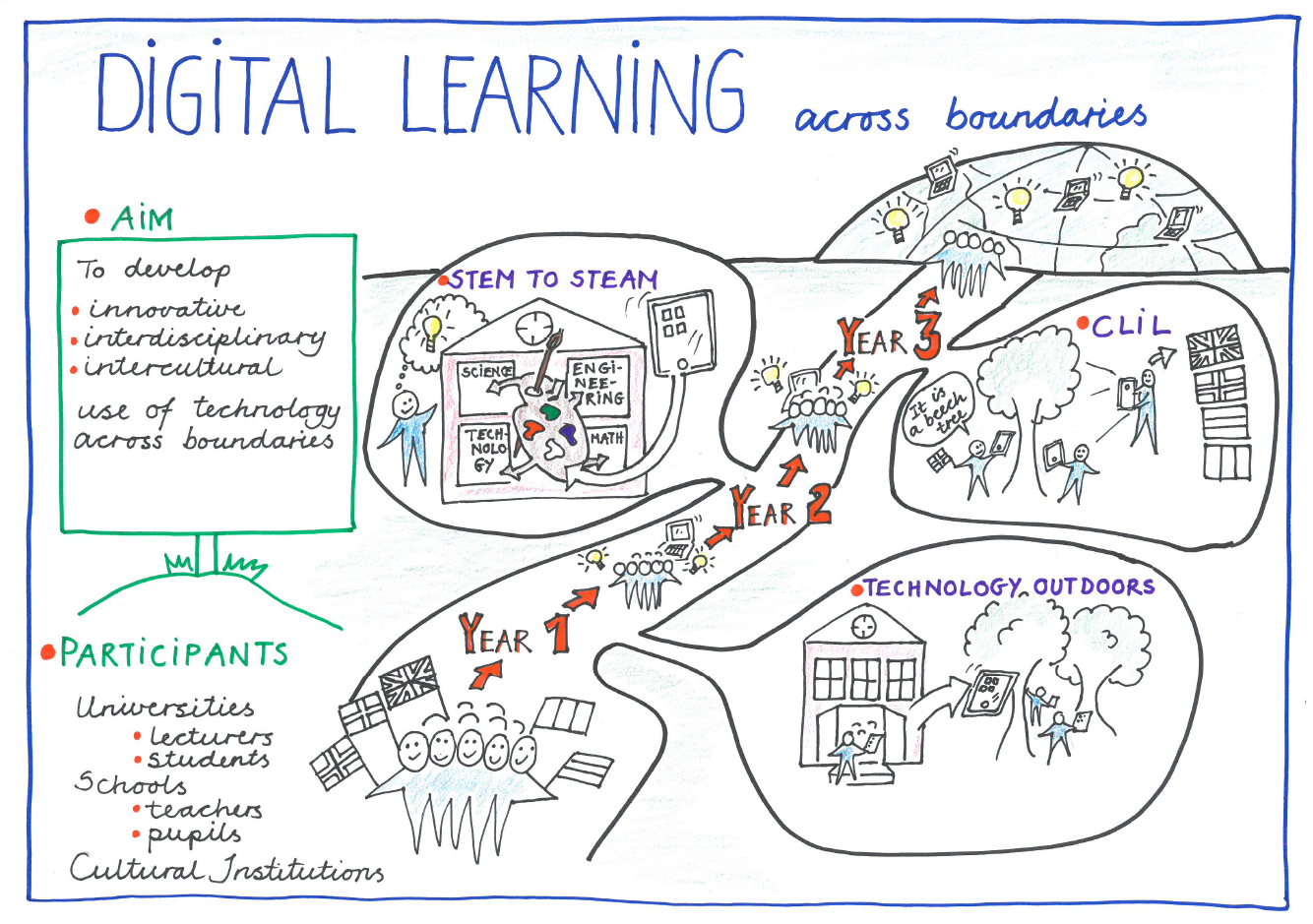Get out of the classroom and learn: Erasmus+ project to benefit education across Europe
Date 22.09.2016

Learning within our environment will be at the heart of the upcoming digital PLAYDATE (People Learning and Asking ‘Y’) hosted by the University as part of a new Erasmus+ project.
Technology is transforming the way our everyday lives operate, and is increasingly being used as a tool for education. The Erasmus+ project, ‘Digital Learning across Boundaries’ (DLaB), lead by four academics from the Faculty of Education and Humanities, will connect educators from partner organisations in Denmark, Norway, Belgium and England as they explore the use of technology within education.
Technology and digital innovations are the forefront of ways to transform cross curricular learning for pupils from around the world. The DLaB project will unite student teachers, teachers, pupils, lecturers and cultural partners across four European countries to experiment and develop their technology skills for education across three key themes; technology outdoors, the incorporation of Arts within Science, Technology, Engineering and Maths (STEAM), and technology to teach language and cultural understanding.
The first five-day PLAYDATE, will focus on learning through spaces which are not traditional classrooms. The sessions in Northampton will make the most of public and arts spaces within Northampton’s Cultural Quarter, as well as the University’s Forest School, and Abington Park. Over fifty educators from the eight partner organisations will take part in workshops and demonstrations using technology to plan intercultural projects that will be implemented within schools over the next few months and have an impact on children’s learning. These projects will then be shared with an international audience of educators.
Helen Caldwell, Senior Lecturer in Education at the University of Northampton said: “This Erasmus+ project will evaluate ways to break down traditional curriculum boundaries in a variety of ways through the use of technology for learning. For example, we’ll be heading outdoors with iPads and creating digital scavenger hunts to develop children’s understanding of the environment. eTwinning activities connecting classrooms in different countries can be a fantastic learning tool for developing language and cultural understandings
“Over the summer colleagues from the Faculty of Education and Humanities were lucky enough to visit Denmark to meet with other partners to kick off the project. We’re all very interested to chart our Digital Learning Across Boundaries developments over the next three years.”
Join in the conversation on Twitter using #DLABerasmus